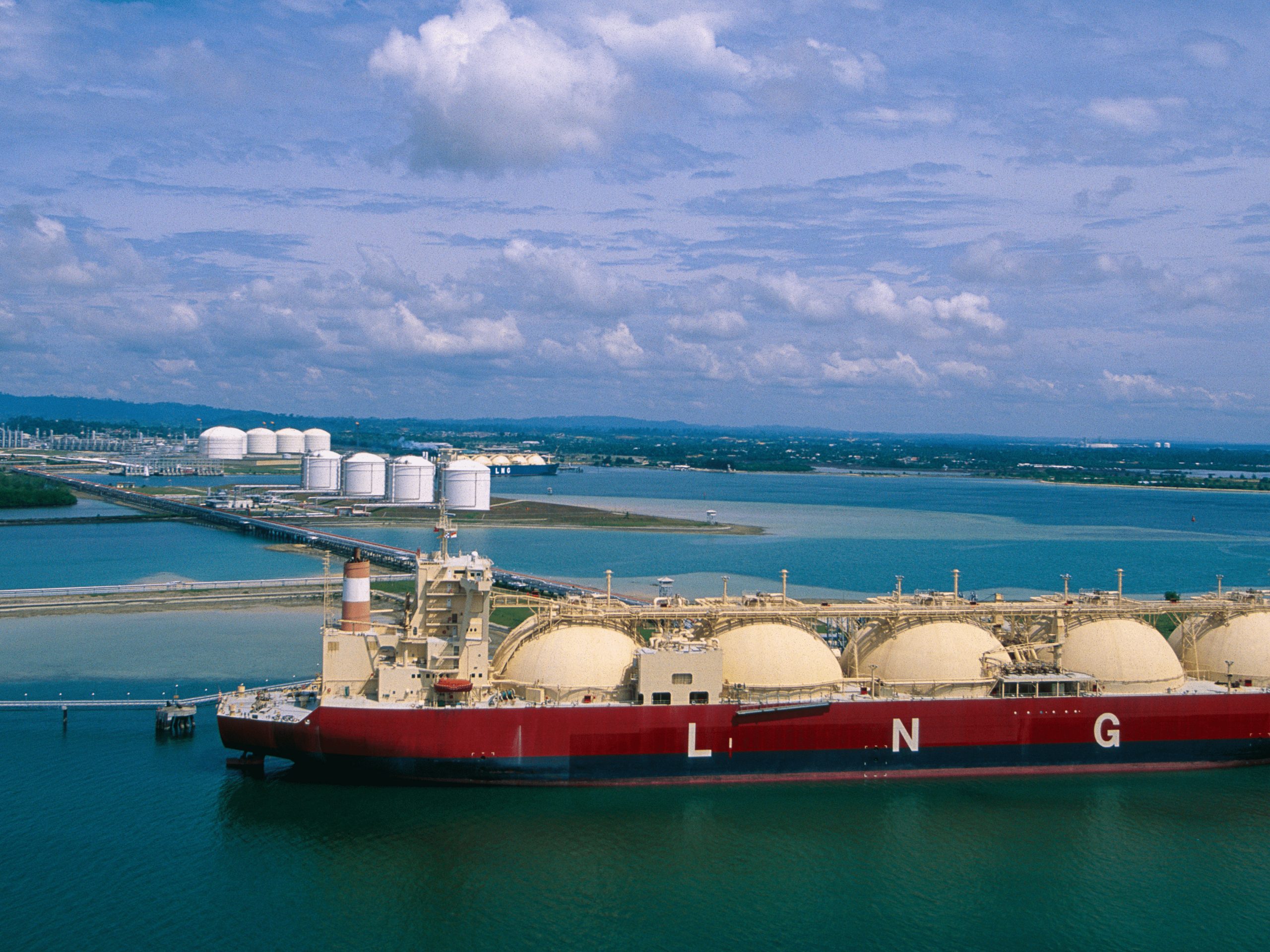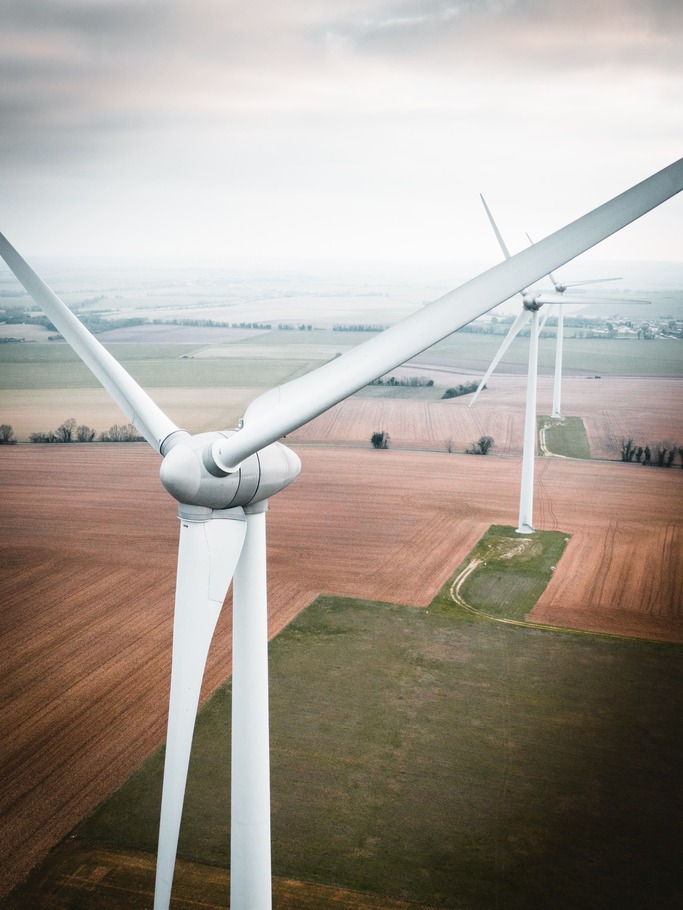What is LNG?
LNG stands for liquefied natural gas. Natural gas becomes liquid at a temperature of -162 degrees Celsius. This is practical because gas in its liquid state has around 600 times less volume than in its gaseous state. This means that no pipelines are needed for transport, and it can be transported flexibly over land or water. Once it arrives at the import terminal, the liquid gas can be restored to its original state and fed into the gas grid. Until now, Germany did not have an LNG terminal and had to obtain it via neighboring countries. To accelerate the construction of gas pipelines and infrastructure for LNG terminals in Germany, the LNG Acceleration Act was introduced. The first terminal in Wilhelmshafen came on stream at the end of 2022. The second terminal in Lubmin followed in January. More are to follow this year, covering one-third of Germany's gas demand.
LNG, climate protection and sustainability: (How) do they fit together?
When natural gas is burned, climate-damaging CO2 is released. With LNG, the natural gas has to be liquefied, cooled, transported and regasified, all of which requires additional energy. Since a lot of gas is imported from the USA, the transport routes are correspondingly long and the natural gas is extracted there using the environmentally harmful process of fracking, which is banned in Germany.
According to the German government, liquid natural gas is only a temporary solution, because in the future, green energy sources such as hydrogen are also to be imported. In 2025, the export of green hydrogen from Canada to Germany is to begin.
What do environmental associations say?
Some environmental groups criticize the rapid construction of LNG terminals. Deutsche Umwelthilfe (DUH) sees no need in LNG terminals for energy security and independence. Likewise, DUH criticizes that the new construction of the terminals will create new long-term dependencies - now no longer on Russia, but on the USA and Qatar. Nabu sees the new dependencies as an obstacle to the energy transition that is actually necessary. The long supply contracts guarantee climate-damaging gas until 2041 - which is difficult to reconcile with climate protection targets.
For example, environmental groups are criticizing the LNG terminal in Lubmin off the island of Rügen: BUND Mecklenburg-Vorpommern, NABU Mecklenburg-Vorpommern, WWF and DUH are calling for a halt to all plans for the terminal and for the construction of a new offshore pipeline through the ecologically highly sensitive Greifswalder Bodden. When the terminal in Lubmin was approved, ecological consequences for the Greifswalder Bodden were ignored and important fire protection precautions were not taken seriously.
DUH Federal Director Sascha Müller-Kraenner: "The emergency brake must be pulled on the LNG projects in Lubmin and off Rügen. The Baltic Sea must not be sacrificed for an unnecessary fossil fuel industry. We will prevent the industrialization of the Baltic Sea off Rügen. The operation of the LNG terminal ship in Lubmin must also be stopped. The permit has been granted illegally, essential project components such as the shuttle traffic have not been assessed for their environmental impact."
NABU and BUND also see the ecosystem in Wilhelmshafen in danger from the liquefied gas deliveries. Due to the suspended environmental assessment, they are lodging an objection. The operation could result in toxic wastewater being discharged into the Jade on a daily basis.
Conclusion
In contrast to further investments in fossil energy imports and dependency, the development of renewable energies, energy saving and energy efficiency can not only guarantee energy security, but also be compatible with the climate and thus sustainable.
Related links
- Tagesschau: How far along are Germany's LNG terminals?
- NDR: LNG: How much liquefied natural gas is currently arriving in Germany?
- Deutsche Umwelthilfe: Strong alliance against LNG plants off Rügen and Lubmin: Environmental associations support opposition of Deutsche Umwelthilfe and demand cancellation of projects
- German Environmental Aid: LNG
- NABU: LNG terminals: NABU and BUND file objection
- NABU: LNG is only a sham solution








